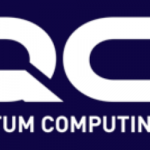Quantum computers won’t replace your laptop

(ZDNet) Should we expect that such quantum computing technology will gradually make its way into consumers’ lives once its are ready for commercialisation, and even that they will replace the computers that we are familiar with today.
After all, the first classical computers built in the middle of the 20th century were gigantic systems that were seen at the time as the pinnacle of technology, only to be accessed by white-coated researchers in secretive labs. For most people, the idea of using a computer for day-to-day applications seemed simply ludicrous.
Not so fast, warns Bill Fefferman, assistant professor in the computer science department at the University of Chicago. “Quantum computing is hugely exciting, but maybe not for the reasons that people think it’s exciting,” Fefferman tells ZDNet.
“Quantum computing will not be a general-purpose speed-up on all problems. We actually have a lot of evidence showing that for many tasks, we won’t be able to get meaningful speed-up on a quantum computer.”
Everyday processes that involve the manipulation of transactional data — buying an item or checking revenue projections, for example — are much better carried out by classical computers, and so are database applications. Emailing, voice and video calling, or social media scrolling all work fine on existing phones and laptops, and there’s very little that quantum computers are expected to change in this realm.
This is why even in 100 years, says Fefferman, when a universal fault-tolerant quantum computer might be available, consumers will still using classical computers for many, if not most, tasks.
What quantum computers are expected to excel at is a set of specific use cases. Examples include computation in chemistry and physics, for example to discover better antibiotics and medications; but researchers are also investigating potential use cases in machine learning and AI, as well as ways that quantum computing could speed-up optimisation problems in industries like finance or transportation.
For those specific applications, quantum computing could provide an extreme speed-up that will come on top of classical computing.



















